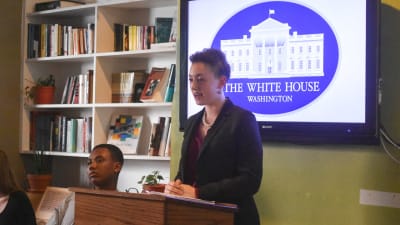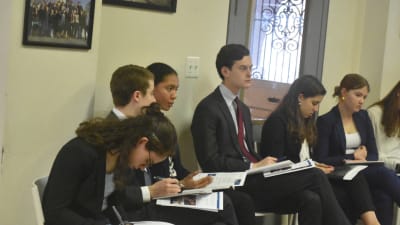Ambassador Mark Dybul, former U.S. Global AIDS Coordinator, gives Master Class at SEGL
Imagine you are in charge of U.S. HIV/AIDS funding for Haiti…or India…or Botswana…or any of the countries that now receive support from PEPFAR (President’s Emergency Plan for AIDS Relief). It is time to present a five year plan for that country to PEPFAR’s head, the U.S. Global AIDS Coordinator. Will you recommend more funding? Where will the money come from? Why does your country deserve those funds more than others? Will you reallocate it? How can you be sure your reallocation will save more lives? Will you reduce funding? Why?
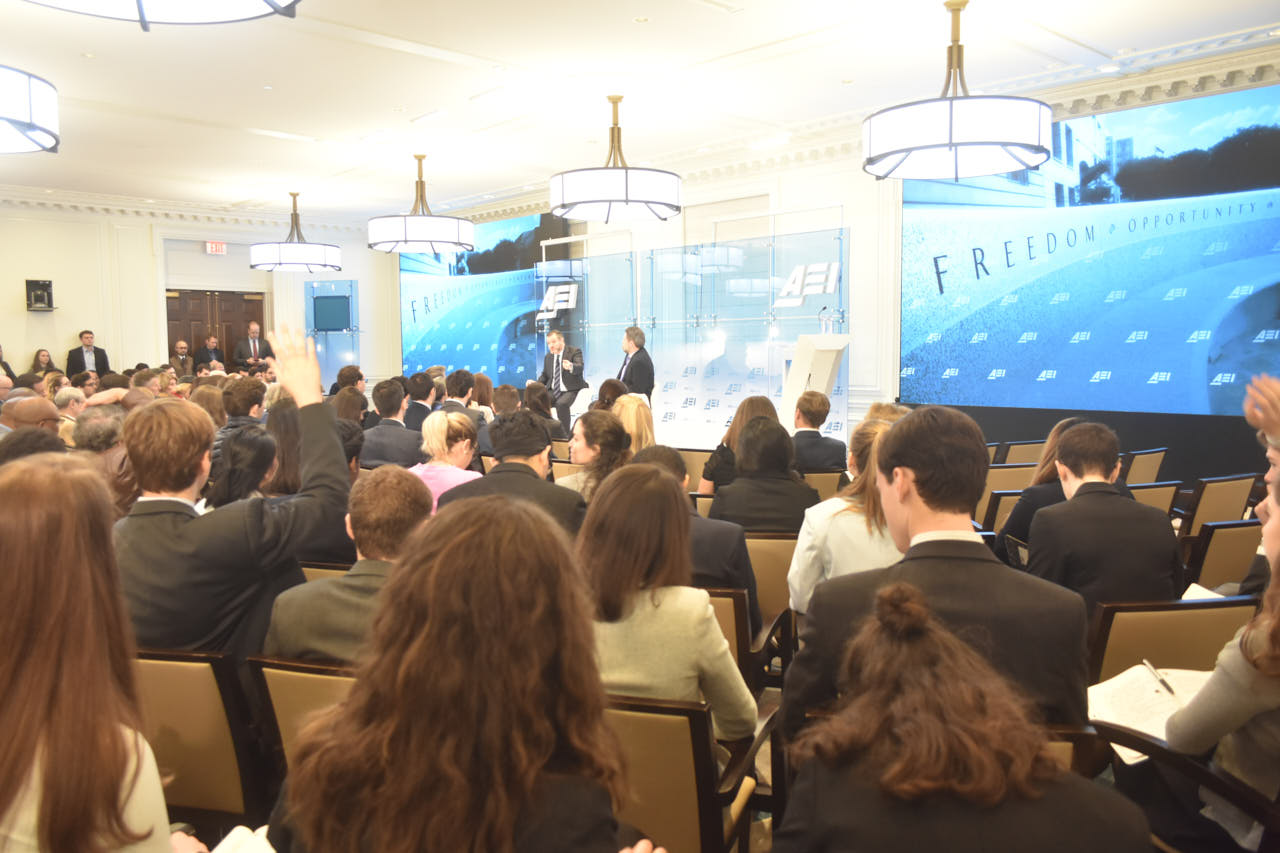
This was the challenge that five small groups of our students faced this past week at SEGL. On Monday, science teacher Alvin Fridie presented an entertaining mini-lab on how viruses spread, and students learned basic facts about the disease around the world and in DC (where HIV/AIDS is well past epidemic levels). On Wednesday, each group visited the Embassy of its assigned country (Haiti, India, Botswana, Mozambique, and Uganda), meeting with the Ambassador or another high-ranking official to hear that country’s point of view.
[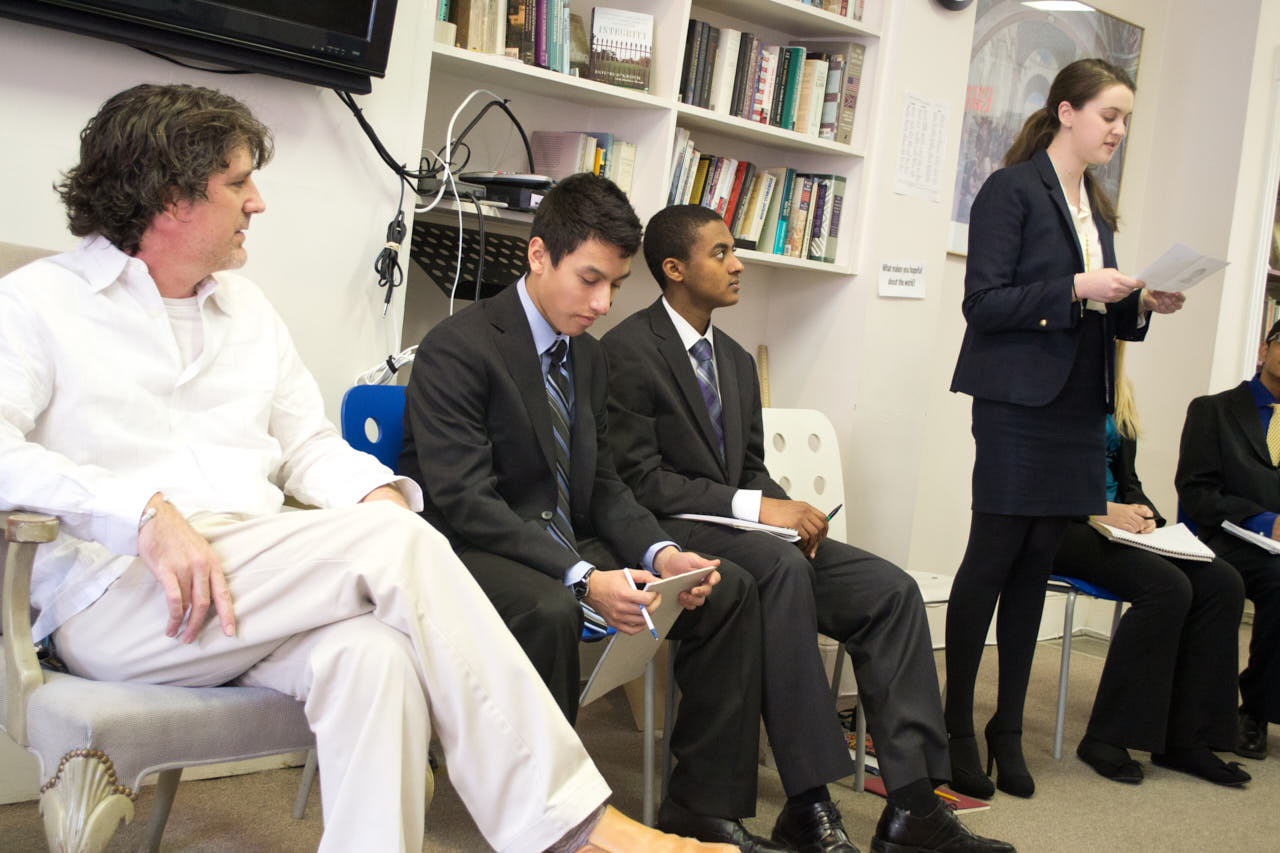
We then met with longtime SEGL speaker Justin Goforth, the Director of Medical Adherence at the Whitman-Walker Clinic, DC’s largest HIV/AIDS medical program. Goforth (who is himself HIV positive) shared key facts about the epidemic in DC (“DC should be a PEPFAR country,” he often says) and told stories about his own experience. Many of the students were left wondering how to balance the need for HIV/AIDS funding in DC with the need for funding abroad.
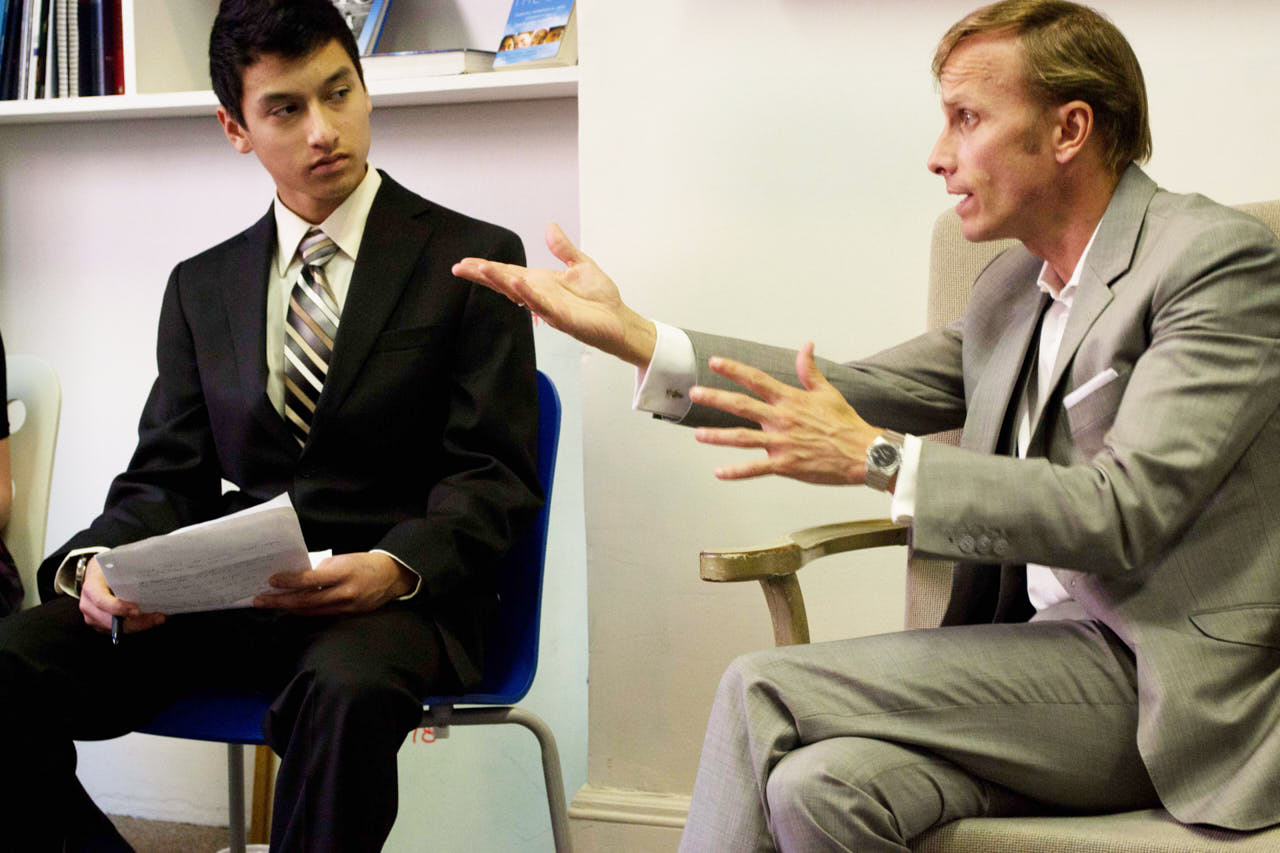
On Thursday afternoon (normally our final E&L session of the week is on Friday, but our small size makes us nimble enough to move classes to accommodate the schedules of our guests), we welcomed Ambassador Mark Dybul for the third Master Class of the semester. Dybul was the principal architect and primary implementer of PEPFAR, the Bush Administration’s game-changing effort to combat HIV/AIDS around the world. One by one, the groups presented their two-page policy memos, written in the style required by the State Department, and one by one, Dybul engaged each cohort with Socratic questions and ethical dilemmas. For example: should India receive funding when its economy is booming and it spends hundreds of millions of dollars on nuclear weapons? Should geopolitical interests impact funding for humanitarian causes? What argument could a Member of Congress make to convince a constituent that her tax dollars are best spent overseas in a country she has never heard of at a time when the U.S. faces economic turmoil?
The results of the discussion were powerful. In our reflective conversation afterwards, the students not only noted the ethical quandaries that Dybul picked out, but also the critical thinking skills required to do well in these circumstances: determining what information is truly important, understanding how to answer questions directly (and on the spot!), and anticipating what the long term consequences of a decision is.
On Saturday morning in English class the students received a special treat: a visit by Teresa Spencer, a company member and trustee at the Maryland Shakespeare Festival who has played the lead in a variety of Shakespeare productions (including Isabella in Measure for Measure, Viola in Twelfth Night, and Rosalind in As You Like It). Spencer led the students in a creative vocal warm up and then gave a clinic on Shakespearean scansion–how to determine, read, and perform given line(s) of iambic pentameter. Later in the term, each student will memorize and deliver the famous St. Crispin’s Day speech (“we few, we happy few, we band of brothers…”), and so her lesson was particularly appropriate.
This week we are tackling the conflict between the Israelis and Palestinians. More on that very soon.
